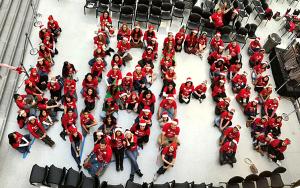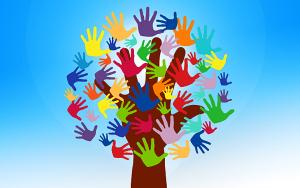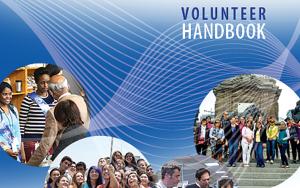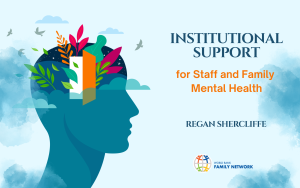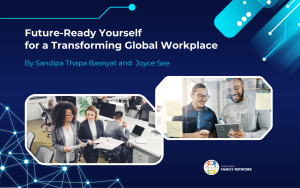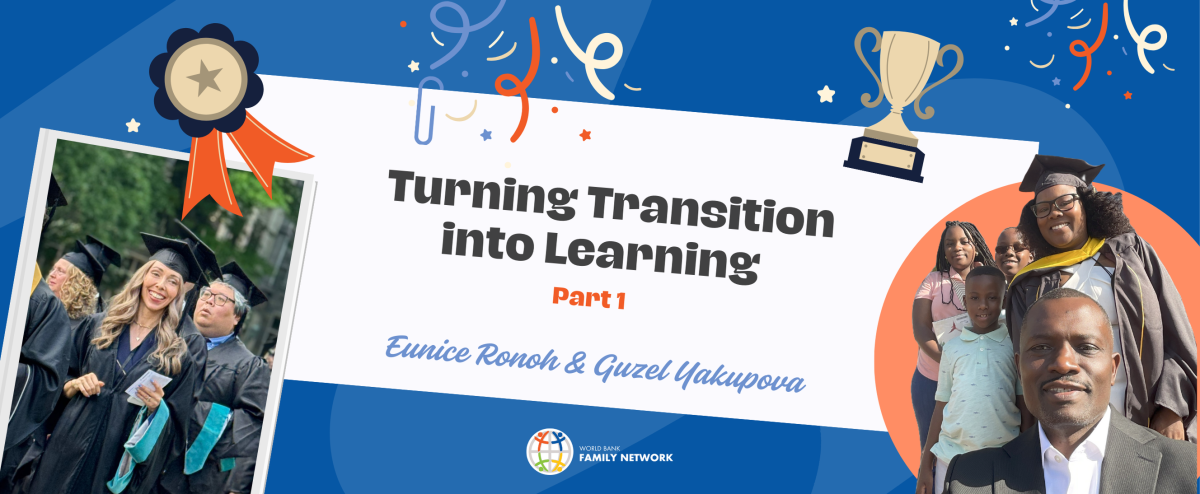
Turning Transition into Learning
Part 1- Eunice Ronoh & Guzel Yakupova
Moving abroad as a World Bank accompanying spouse often means hitting pause on familiar routines and career paths. But what if that pause could become the most enriching chapter of your story? Many of our members have discovered that this unique window of time offers an extraordinary opportunity to pursue dreams or explore hidden talents. In this two-part series, we share stories of four WBFN members who transformed their expat experience into personal growth and prospects.
- What inspired you to pursue learning/education during your time as an accompanying spouse/partner?
Eunice Ronoh: When my spouse accepted a position with the World Bank Group (IFC) in the United States, I saw it as a great opportunity to relocate with my family and explore the U.S. job market. However, securing a job wasn't as straightforward as I had anticipated. Obtaining a work permit during the COVID-19 pandemic took over eight months. Even after receiving the work permit and participating in several WBFN sessions on resume writing and interview preparation, I found it challenging to get interview opportunities despite my strong educational background and over 15 years of experience in the manufacturing sector. After two unsuccessful interviews, I decided to pursue my second aspiration: furthering my studies. I believed that earning a U.S. degree would significantly enhance my job prospects.
Guzel Yakupova: We were relocated not long after the COVID-19 pandemic, and I had to resign from my job in another country. With most things still shut down and very few companies hiring in DC, I didn’t feel confident about starting a job search in a new and unfamiliar country. So, I decided the best use of that uncertain time was to invest in a master’s degree, while also giving myself a chance to adjust and learn how to navigate life in the US
- What did you choose to study or learn, and how did you decide on this particular path?
Eunice Ronoh: My first degree is a BSc in Food Science and Technology, and I also hold an MBA, both from universities in Kenya. As a scientist, I felt that a Master of Science would strengthen my credentials, so I chose to pursue an MSc in Regulatory Science at Johns Hopkins University, building on my 15 years of experience as a regulatory manager at Unilever PLC. Initially, I was tempted to go straight into a PhD program, but given the differences in the education system here, I decided to complete the MSc first to familiarize myself and consider a PhD later. I suppose I’m a lifelong learner with a strong passion for education.
Guzel Yakupova: I had been working as a project manager and already held a CAPM certification, but I wanted to go deeper and gain more advanced knowledge in the field. That’s why I decided to pursue a Master’s in Project Management, building on my background and strengthening my expertise in this constantly evolving and highly useful discipline.
Also, I’ve always had a passion for wellness and fitness. So, after completing my master’s and while waiting for my work permit, I took a course with the National Academy of Sports Medicine and became a certified personal trainer. That was both a personal interest and a professional skillset. I think understanding how to take care of our health and bodies is useful in any aspect of life.
- What were some of the challenges you faced, and how did you overcome them?
Eunice Ronoh: Balancing full-time parenting with volunteering for WBFN and attending school was demanding, so I had to make some trade-offs. I learned to structure my time, dedicating schoolwork hours and protecting family time. During this period, I also took up golf; time on the beautiful Maryland’s golf courses helped me get out of the house and recharge.
Another challenge was the initial process of having my degree certificates and transcripts evaluated to align my coursework with U.S. credit equivalents. This step was lengthy and costly. In my case, the evaluation indicated that I needed to complete a prerequisite course —Foundations in Biosciences—before being accepted into the program, which I did and passed.
Securing a scholarship proved challenging. My initial application was declined on the basis that our household income could cover my studies, and I didn’t pursue other funding options at the time. We decided to rely on our savings and restructure our household budget to meet the extra costs. Eventually, I got a part-time consulting job with the IFC, which helped us manage the high university fees.
Guzel Yakupova: Going back to being a student was definitely a challenge. On top of memorizing new material (especially since English isn’t my native language), I also had to figure out how to navigate a new studying system right after the pandemic, when many things were still chaotic and confusing. I thought of it like sending my brain to the gym: tough at first, but it gets better with practice. What really helped was staying consistent, breaking things into manageable steps, being patient, and not being afraid to ask questions. In my classes, I also met new people, and we supported and helped each other.
- How has this experience changed your life or opened new doors for you?
Eunice Ronoh: Earning my degree has been a pivotal moment for both my professional growth and my sense of belonging in a new community. At work, it led to increased responsibilities and greater visibility. My team lead entrusted me with more complex projects, and I was included in higher-level discussions. My compensation was also improved post-graduation.
Equally significant, joining the Johns Hopkins alumni network has opened doors to valuable connections with mentors, collaborators, and professional communities. I am now starting to leverage these relationships for thought leadership opportunities. Through study groups, class projects, and volunteer work, I built friendships and professional ties in the USA, and I feel more confident navigating local institutions and networks.
On a personal level, the journey sharpened skills that keep paying dividends: clearer analytical thinking, stronger writing and presentation, and discipline to balance competing priorities. That confidence translated into action -I’m more comfortable putting my name forward for stretching roles, negotiating for what I need to succeed, and saying yes to opportunities that previously felt out of reach.
Guzel Yakupova: It definitely widened my horizons. I got to understand how things are done in a new country, I made friends, and I earned my second master’s degree, which is highly valued by employers. I now feel more confident and skilled as a project manager, with a stronger foundation for future opportunities. On the personal side, my studies in fitness gave me clarity on how to take better care of my health and body, and also the ability to help others by sharing this knowledge.
- What practical advice would you give to other members who are hesitant about starting their own learning journey?
Eunice Ronoh: First, starting a learning journey as a trailing spouse can feel daunting, but it’s absolutely doable with the right plan and support. My first piece of advice: start small, start now. Take one class, a short certificate, to test your interest and bandwidth before committing to a full degree. Be clear about your goal - career switch, credential recognition, licensure - and work backward to identify the shortest path. Expect trade-offs and plan your time ruthlessly: study hours, family time, and build in buffers around exams and deadlines.
Second, doing your homework early on admissions requirements can easily be underestimated: credential evaluation, prerequisite courses, English or language tests, and application deadlines. This step can be slow and expensive, so start early, budget for it.
Third, financing is often the hardest part. Cast a wide net that includes program-specific scholarships, departmental assistantships, research roles, and external foundations. If your status as a WBG spouse limits eligibility, consider cost savers like public in state options, online/hybrid programs, employer-sponsored learning, and phased study (certificate first, then degree). Part-time consulting, internships, or campus roles can offset costs and build local experience.
Fourth, build your support system early. Lean on the WBFN, school advising offices, study groups, and most importantly, family members. Lastly, when navigating to a new country, look into volunteer roles or applied projects to gain local references. And of course, treat individual well-being as a core strategy—not a luxury.
My parting shot is that life is a cycle of learning, unlearning, and relearning -but it doesn’t have to happen all at once. Start small, plan wisely, and let momentum build, a maxim for success inspired by Alvin Toffler’s discussion of future illiteracy and learning in his bestseller book, Future Shock (1970).
Guzel Yakupova: Unless you are the rare case who really deeply hates studying, it’s worth thinking about all the benefits you can gain. Know your motivation and what you hope to get out of it. Learning does not have to mean going back to class full-time to get a master’s or PhD. Nowadays, there are many different options, from short courses to online programs. If you plan to work, learning can increase your value in the job market, help you build new networks, accelerate your career growth, or even help to start a new career. If you don’t plan to work, it still makes you smarter, keeps your brain active (which can help prevent early cognitive decline), and connects you with interesting people. You never know when the knowledge or skills you gain might come in handy. Either way, you grow personally and professionally.
Stay tuned for Part Two of our ‘Turning Transition into Learning’ series, to hear the inspiring stories of our members Barbra Mukuve and Mwihaki Waithiru (Maggie).

